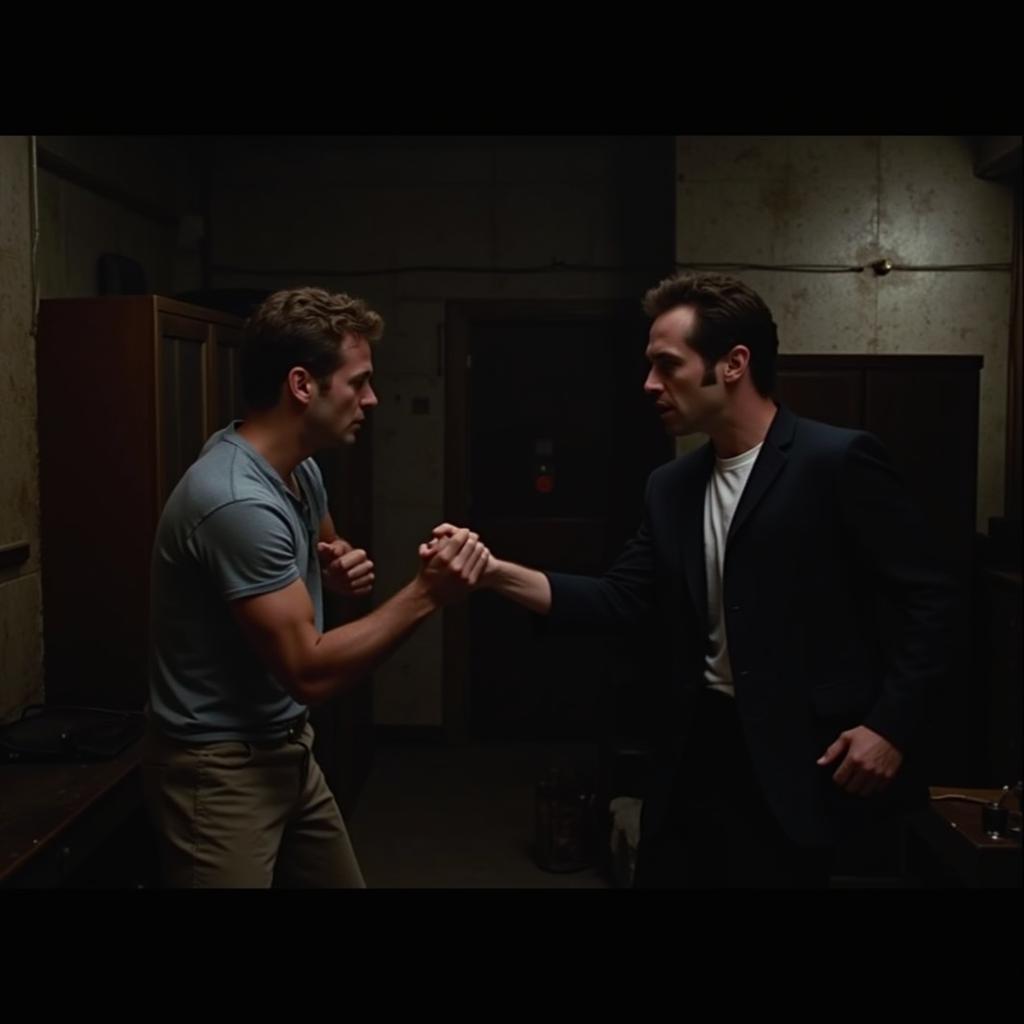Fight Club, the 1999 cult classic directed by David Fincher, is more than just a film about men brawling in basements. This thought-provoking and visually stunning masterpiece delves into the depths of consumerism, masculinity, and the human search for identity in a world consumed by superficiality.
 Fight Club Movie Poster
Fight Club Movie Poster
The film follows the unnamed narrator, played brilliantly by Edward Norton, an insomniac office worker trapped in a monotonous existence. Dissatisfied with his consumerist lifestyle and yearning for something more, he crosses paths with the enigmatic Tyler Durden (Brad Pitt), a charismatic soap salesman with a nihilistic outlook on life. Together, they form Fight Club, an underground society where men can unleash their primal instincts and rebel against the constraints of modern society.
Unmasking the Ills of Consumerism
One of the central themes explored in Fight Club is the suffocating grip of consumerism on modern society. The narrator, initially a poster child for consumer culture, finds himself increasingly disillusioned with a life defined by IKEA furniture and designer clothing. This disillusionment is palpable in his voiceovers, dripping with sarcasm and a sense of emptiness.
“We buy things we don’t need with money we don’t have to impress people we don’t like,” Tyler Durden famously declares, perfectly encapsulating the film’s critique of consumerism. Fight Club suggests that this relentless pursuit of material possessions has left us emotionally bankrupt, disconnected from our true selves and each other.
Redefining Masculinity in a Changing World
Fight Club’s exploration of masculinity is equally compelling. The film challenges traditional notions of masculinity, presenting characters struggling to find their place in a world where traditional male roles are being redefined. The narrator, emasculated by his white-collar job and consumerist lifestyle, finds solace in the raw, visceral experience of Fight Club.
 Fight Club Fight Scene
Fight Club Fight Scene
Tyler Durden, with his rugged individualism and rejection of societal norms, embodies a hyper-masculine ideal that both attracts and repels the narrator. The film suggests that the crisis of masculinity is fueled by a disconnect from genuine human connection and a yearning for a sense of purpose beyond the superficiality of modern life.
Embracing Chaos as a Catalyst for Change
As Fight Club progresses, the initially cathartic fight club devolves into something far more sinister: Project Mayhem. This anarchist group, led by the increasingly unhinged Tyler Durden, aims to dismantle the foundations of society through acts of vandalism and destruction. While the film doesn’t endorse this descent into chaos, it does suggest that sometimes, radical change requires a break from the status quo.
The film’s ending, open to interpretation, leaves viewers contemplating the consequences of societal unrest and the thin line between liberation and destruction.
Conclusion: Fight Club’s Enduring Legacy
Fight Club remains a powerful and relevant film, even decades after its release. Its unflinching exploration of consumerism, masculinity, and the human need for purpose continues to resonate with audiences today. While its violent imagery and controversial themes may not be for everyone, there’s no denying the film’s impact on popular culture and its ability to spark meaningful conversations about the world we live in.
If you’re looking for a film that will challenge your perspectives and stay with you long after the credits roll, Fight Club is a must-watch. And remember, the first rule of Fight Club is… well, you know the rest.

